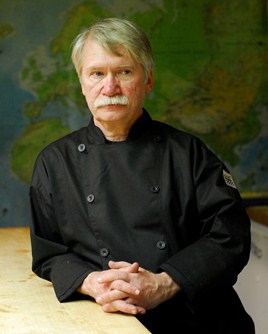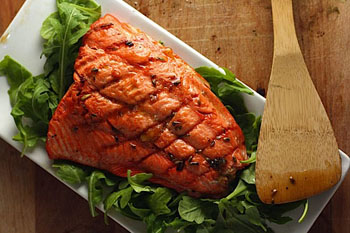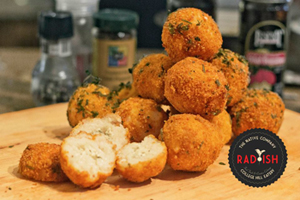Guest Speaker: The Hands of a Chef—the Ultimate Tool
Thursday, 31 January 2013 14:07
 Almost 25% of the motor cortex of the human brain is dedicated to the hands. Yet as chefs, says this former president of a prestigious culinary school, we take better care of our knives.
Almost 25% of the motor cortex of the human brain is dedicated to the hands. Yet as chefs, says this former president of a prestigious culinary school, we take better care of our knives.
By Paul Sorgule, MS, AAC
I have been giving lots of thoughts to my tool kit lately. Like many chefs, I have a plethora of knives, forks, cutters, pastry tips, strange new gizmos and the like. My tool kit (if I brought everything with me to the kitchen) would require a two-wheel cart to drag it from location to location. Instead, I usually bring a handful of knives in a small tackle box.
Unlike some of the young “chefs in training” who have $300 Japanese knives, mine are pretty modest. Keeping an edge on the knife is the only real important factor in determining how well a knife cuts.
As I look at this arsenal of cutting equipment it suddenly came to me that the knife without the hand is pretty useless. This made me really start to wonder in amazement at the versatility of the human hand and how it truly is the most important tool in a chef’s kit.

 It and 10 others join The Food Channel’s 2013 Trends Forecast. Smoked water, anyone? And “no choice” is becoming the new choice when dining out.
It and 10 others join The Food Channel’s 2013 Trends Forecast. Smoked water, anyone? And “no choice” is becoming the new choice when dining out. Cascade Culinary Institute builds a new culinary center whose physical and spatial attributes meld perfectly with its natural surroundings, facilitating student learning and the successful collaboration of education and community.
Cascade Culinary Institute builds a new culinary center whose physical and spatial attributes meld perfectly with its natural surroundings, facilitating student learning and the successful collaboration of education and community. Using Kickstarter for funding, RADISH rolls out as a reality for a group of Providence students of various disciplines. And delicious, wholesome food served from an artists’ hub on wheels becomes the order of the day.
Using Kickstarter for funding, RADISH rolls out as a reality for a group of Providence students of various disciplines. And delicious, wholesome food served from an artists’ hub on wheels becomes the order of the day. Jack Uldrich to launch Mercer Cutlery’s Speaker Series at inaugural CAFÉ event in Chicago, Feb. 22-24, 2013.
Jack Uldrich to launch Mercer Cutlery’s Speaker Series at inaugural CAFÉ event in Chicago, Feb. 22-24, 2013.